Settings for HDR OTDR Tests
OptiFiber HDR modules include Passive Optical Network (PON) Test Types, which can be configured using Auto or Manual settings. If the fiber link you are testing includes optical splitters and you want to characterize them by split ratio in the result, make sure you choose a PON OTDR Test Type.
This sequence is seen by tapping Manual PON OTDR, Manual PON OTDR Settings
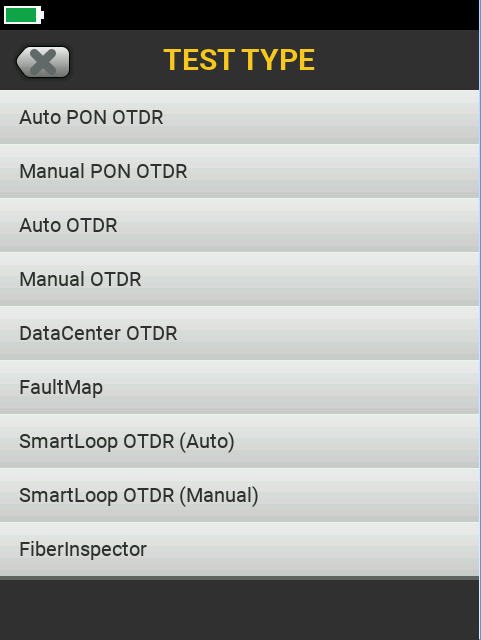
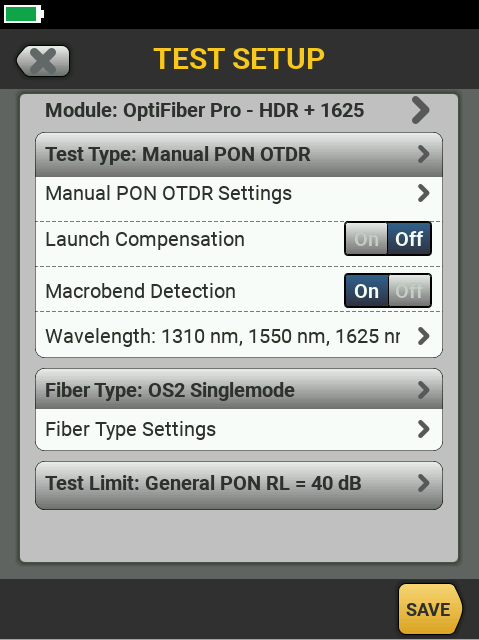
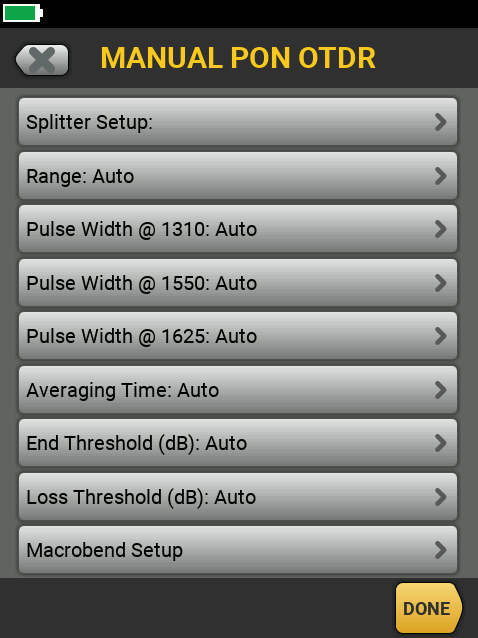
Auto PON OTDR: The tester automatically selects settings that give you the best view of the events on PON links. The tester automatically uses the DISCOVER function to locate splitters and identify their ratios. Este modo é o mais fácil de usar e a melhor opção para a maioria das aplicações.
Manual PON ODTR: This mode lets you select settings to control the test parameters for the trace. You can also enter the ratios of splitters that you know are on the link, or use the DISCOVER function to locate splitters and identify their ratios. If you do not enter splitter ratios, the tester identifies splitters as large loss events.
In the screenshots below, the OptiFiber Pro HDR OTDR was connected downstream from the splitter, and the DISCOVER function was used to locate and identify the splitter as 1x16.
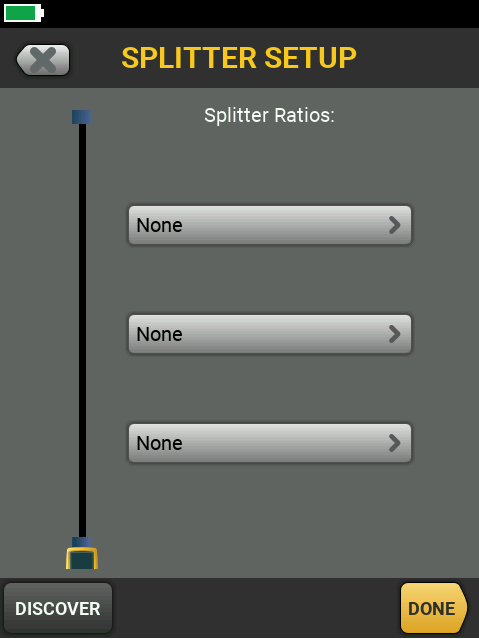
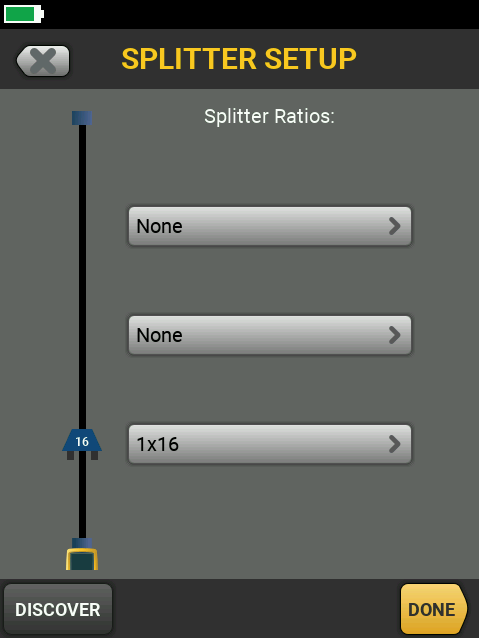
OTDR automático: This is the same as the Auto PON OTDR test, except that the tester does not identify splitters. If the link has splitters, the tester identifies them as large loss events. Note Some unusual faults can cause the Auto OTDR test to show an unsatisfactory trace. If this occurs, use the Manual OTDR test to get a better trace.
OTDR manual: This is the same as the Manual PON OTDR test, except that the tester does not identify splitters. If the link has splitters, the tester identifies them as large loss events. Manual settings are described in this table.
DataCenter OTDR: This test is optimized for fiber installations that have short links, many connections, and the possibility of large reflections. The maximum range for this test is 5 km for singlemode.
Click here to see an excerpt from the Versiv Series Technical Reference Handbook with additional information on settings configuration.





